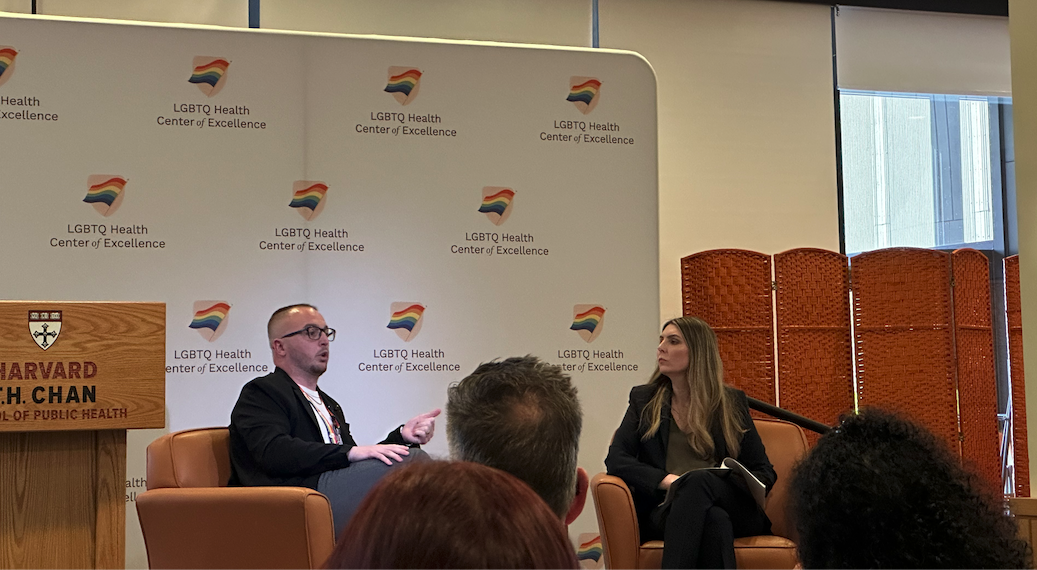lgbtqia+ health
Harvard launches new LGBTQ Health Center of Excellence

Theresa Gaffney/STAT
Yesterday, I attended the launch event for the LGBTQ Health Center of Excellence, an academic partnership between Harvard Pilgrim Health Care Institute and Harvard T.H. Chan School of Public Health. The new center is focusing on educating clinicians, as well as conducting and disseminating research on queer health disparities and interventions.
"Name your favorite health outcome," the center's founding director, epidemiologist Brittany Charlton, said in an on-stage conversation with STAT's Alexander Spinelli: Queer people face disparities at every stage of health care, from the first interaction with a provider through the rest of our lives. "Discrimination makes you sick and it kills you," she said.
In a short interview after the program, Charlton explained that the center's work will focus on disparities in areas like adolescent mental health, chronic disease, and — one of her biggest interests — reproductive health among queer women and gender minorities like trans folks.
artificial intelligence
Startups are descending on D.C. to offer tech advice
As Congress and the White House weigh the risks of artificial intelligence against its potential, business leaders are positioning themselves to offer advice to lawmakers. They're worried that Washington doesn't have the expertise to regulate AI, and want to share their technical knowledge.
But they're also there to promote their own industry — and the promise of a dynamic, vibrant economy they say may only be achievable if future regulations don't hamstring startups. Read more from STAT's Mohana Ravindranath on how industry leaders are positioning themselves.
dogs
First blinded study of service dogs for veterans with PTSD
Veterans who have been diagnosed with PTSD endure less severe symptoms and experience significantly less depression and anxiety when they have a psychiatric service dog, according to a study published today in JAMA Network Open. It's the first NIH-funded study — and the largest ever — to focus on service dogs for military-related PTSD. It's also the first study on this topic to use blind ratings, meaning that clinicians who assessed patients' outcomes didn't know whether they had a dog or not.
For three months, the researchers followed 150 veterans with a diagnosis of PTSD, half of whom were given a service dog based on their position on the waitlist. All participants had full access to other types of mental health care during the study, which suggests service dogs should be given in combination with standard care, the authors wrote.


No comments